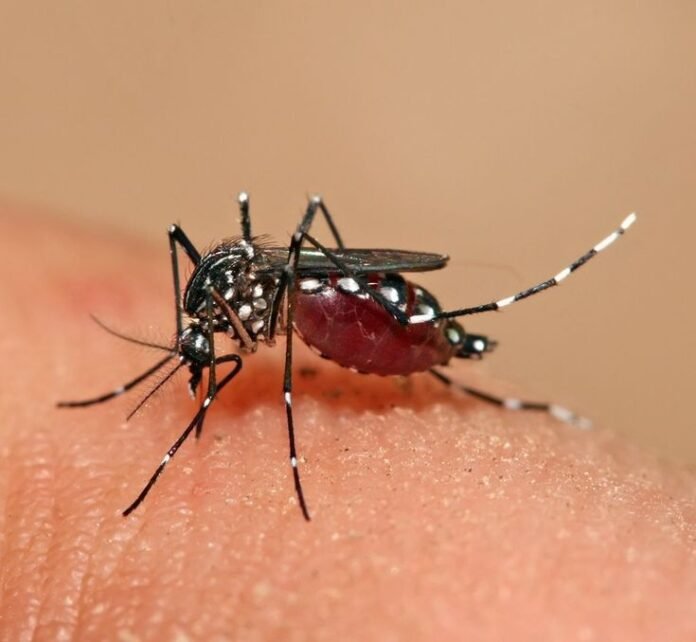The Government of Assam has issued a serious health alert following an alarming rise in dengue and Japanese Encephalitis (JE) cases across the state. As monsoon floods submerge large parts of the region, health authorities are battling dual outbreaks of these mosquito-borne diseases.
With 138 dengue cases and 91 confirmed JE infections reported this year—alongside four JE-related deaths—the Assam health alert is a call for urgent community participation and swift medical response.
Why the Assam Health Alert Was Issued
Monsoon Worsens Public Health Conditions
Heavy rains have caused flash floods in over 20 districts of Assam, creating ideal breeding grounds for Aedes aegypti (dengue vector) and Culex mosquitoes (JE carriers). The mix of stagnant water, poor sanitation, and livestock exposure has amplified risks—especially in low-lying and rural zones.
Experts point out that the intensity of the 2025 monsoon is comparable to the 2017 floods, which also triggered widespread vector-borne outbreaks.
“Climate-linked monsoon patterns are bringing faster, more destructive floods—and with them, epidemics,” says Dr. Ratul Deka, Public Health Consultant, Assam Medical College.
District-Level Spread of Dengue and JE Under Assam Health Alert
Dengue-Impacted Districts
- Morigaon & Jorhat: 18 cases each
- Lakhimpur: 13 cases
- Dima Hasao: 11 cases
- Kamrup (Metro): 9 cases
JE High-Risk Zones
- Nalbari & Barpeta: 10 cases each
- Dhubri, Goalpara, Kokrajhar: 6–8 suspected cases
- Chirang & Bongaigaon: Under review
Rural households with pig enclosures and waterlogging are most vulnerable. The health department is deploying mobile units to conduct larval surveys and antigen tests in remote areas.
Medical Response to Assam Health Alert
Hospitals Facing Overload
Government hospitals in Guwahati, Silchar, and Tezpur have reported bed shortages in pediatric and infectious disease wards. Private clinics are also seeing record patient inflows with high fever, joint pain, and neurological symptoms—common dengue and JE indicators.
Fogging, Fumigation, and Field Action
Under the Assam health alert, district authorities have begun:
- Daily mosquito fogging in high-risk areas
- Distribution of mosquito nets in flood shelters
- Setting up temporary test camps near relief centers
- Awareness drives through local radio and schools
About Japanese Encephalitis: A Silent Killer
JE is a viral brain infection spread by Culex mosquitoes, often breeding in rice fields and pig farms. Unlike dengue, which causes internal bleeding in severe cases, JE leads to brain swelling, seizures, and coma.
Fatality Rate: 20–30% if untreated
Vaccination: Part of India’s Universal Immunization Programme (UIP), but coverage gaps persist in Assam’s rural belts
How You Can Respond to the Assam Health Alert
Community Action is Crucial
- Eliminate standing water: Empty coolers, tires, and clogged drains
- Wear long clothing: Especially for children and field workers
- Install window screens and use nets at night
- Avoid pig enclosures or report them for government inspection
- Vaccinate children if not already covered for JE
Government Helplines & Support
The Assam Health Ministry has activated the following support lines:
- Dengue & JE Helpline (24×7): 104
- Flood Medical Emergency Line: 1070
- District Vector Control Cell: Available at all PHCs
READ MORE: Protest Against Kulsi River Dam Grows Over Ecological Concerns
Assam faces a defining moment as monsoon‑driven disease risks rise. Early detection, community action, and consistent surveillance can prevent a full‑scale outbreak. Stand vigilant, act now, and help protect public health through the crucial months ahead.


